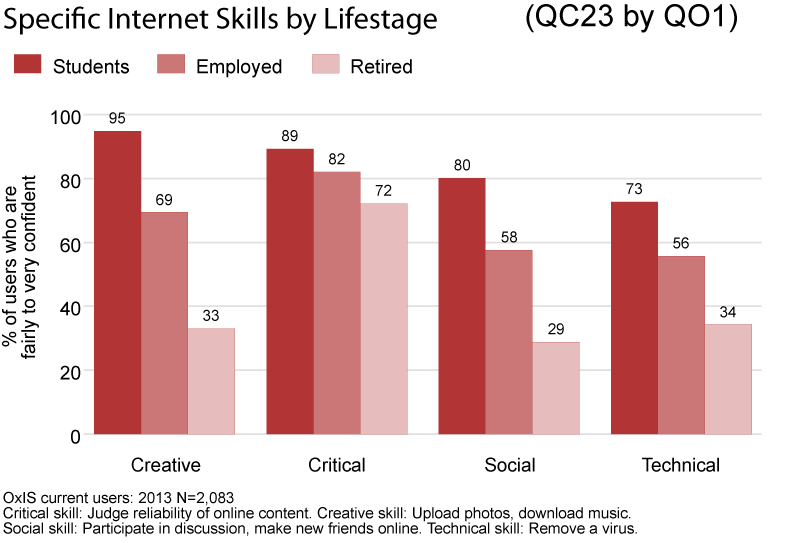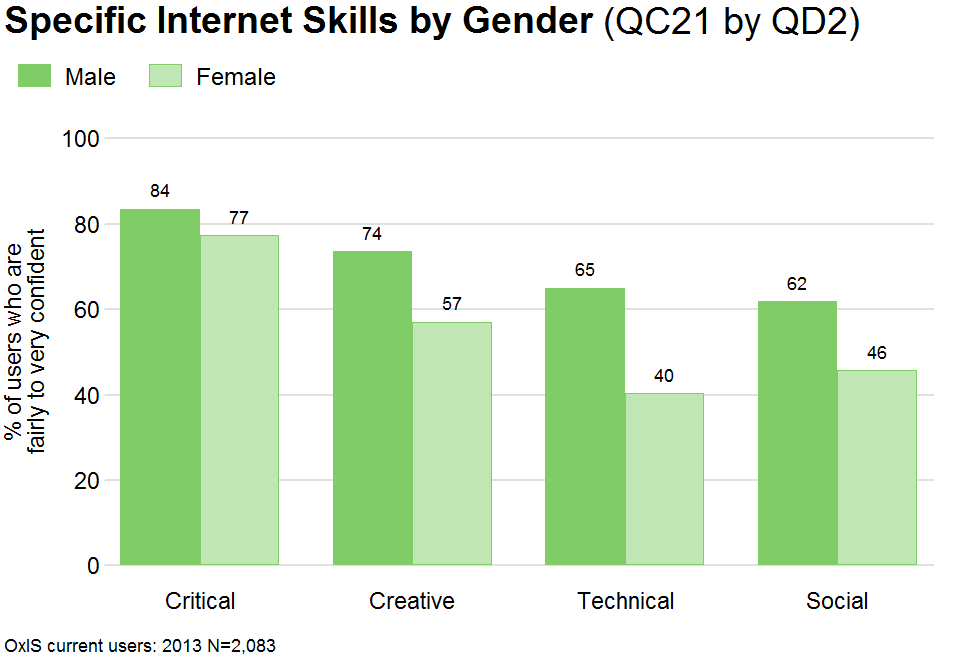The percentage of Internet users with good or excellent self-rated Internet use skills has steadily increased from 60% in 2003 to 74% in 2013. Self-rated ability still varies by lifestage and gender, however, compared to 2011 the gap between men and women has shrunk from 12 percentage points to 7 percentage points (in 2013: 77% vs 70%). By contrast, big differences between individuals at different stages of their lives persist: students (92%) are more likely to say they are confident of their skills than are employed (77%) and particularly retired people (49%).
OxIS measures Internet user’s confidence in performing important online tasks such as uploading photos and making new friends. Confidence in different types of skills varies considerably between individuals at different stages of their lives. A large majority of students feel fairly or very confident they can perform creative, critical and social (all above 80% in 2013) activities online. Students are more confident than employed and much more confident than retired individuals in all four skills types. The biggest differences are in creative (95% vs 69% vs 33%) and social (80% vs 58% vs 29%) skills.
Interestingly, 72% of retired individuals feel confident in their critical skills, whereas only about one third of them trust their creative (33%), social (29%) or technical (34%) skills. Similarly, the largest percentage of employed individuals feel confident about performing critical activities online (82%).
Internet skills are one of the few areas where there remains a gender gap. Men are more confident than women. This is true not just in expected areas like technical skills, although that is where the gap is the largest (25 percentage points), but also in social skills where there is a 16 percentage point gap. This large gap is a little surprising. One might expect women to have more confidence in their social skills than men.




